No matter how positive, gentle, or respectful parents try to be, sometimes emotions can get the best of them. Especially when kids push the buttons they didn’t even know they had. And before they realize it, they find themselves raising their voices. While feelings of parental frustration are normal, frequent yelling, according to parent coach Tia Slightham, can have long-lasting effects on little ones.
Recently, on her TikTok account, she shared 5 consequences that can happen when parents shout at their children. She created and posted the short video to help parents understand why they must avoid doing that for the benefit of their kids. Scroll down to find the full video below and don’t forget to tell us your thoughts about it in the comments.
Sometimes emotions can get the best of parents, and they raise their voices

Image credits: Getty Images / unsplash (not the actual photo)
However, this parenting coach highly advises not to do it, as it can have harmful consequences
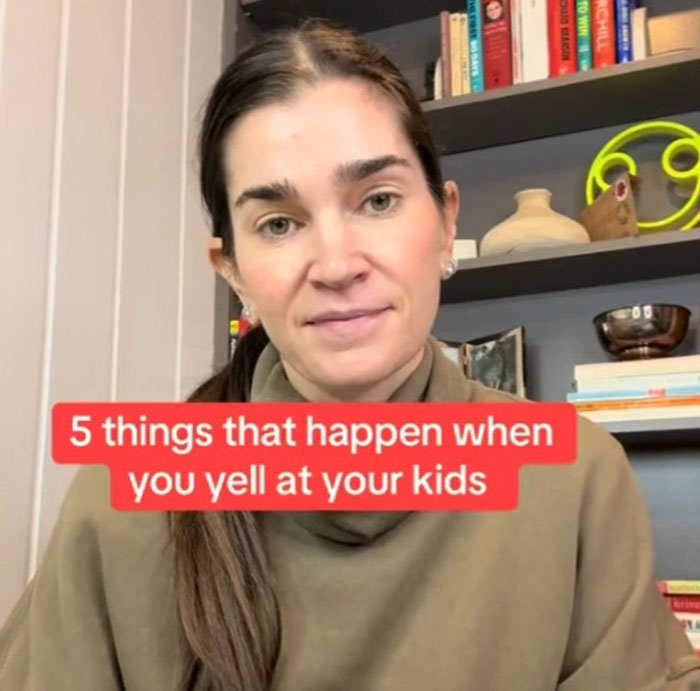
Image credits: parentingcoach

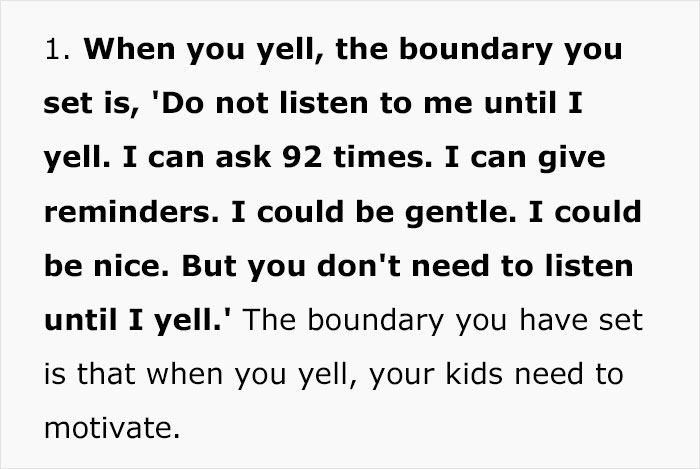
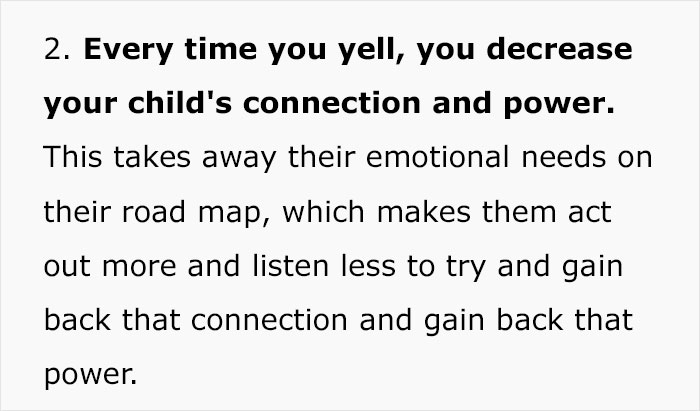
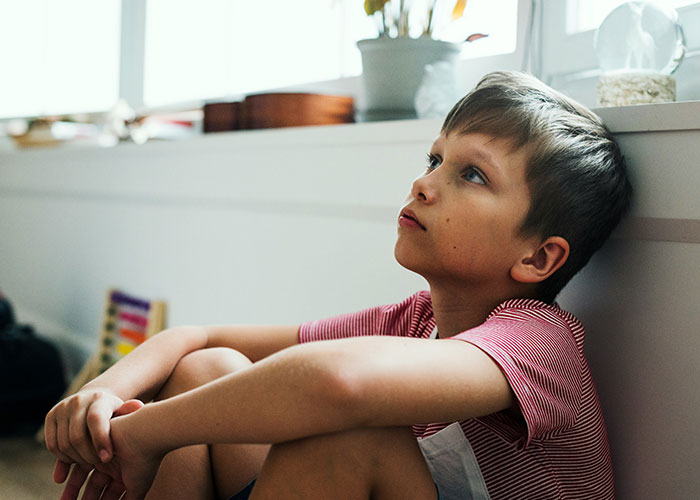
Image credits: Curated Lifestyle / unsplash (not the actual photo)
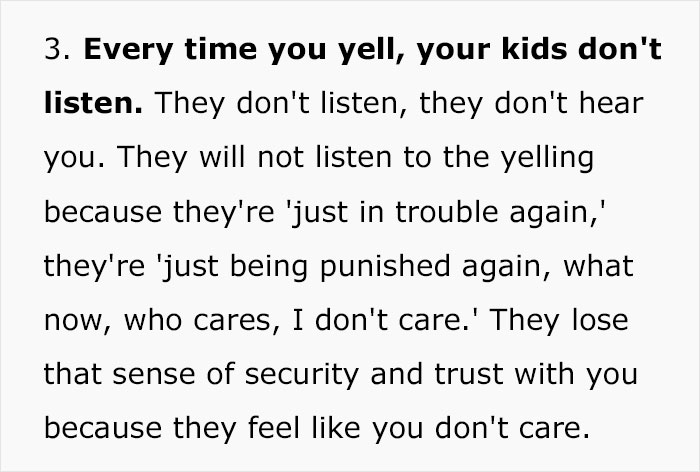
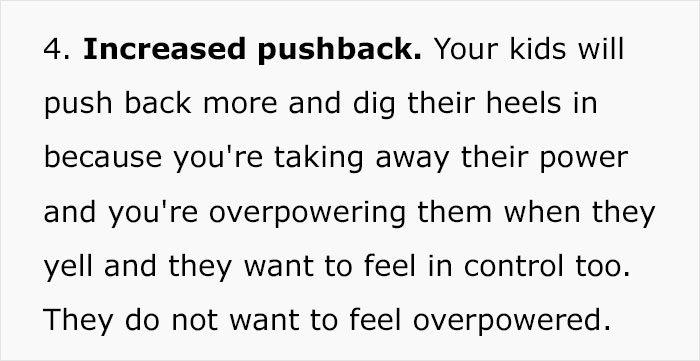
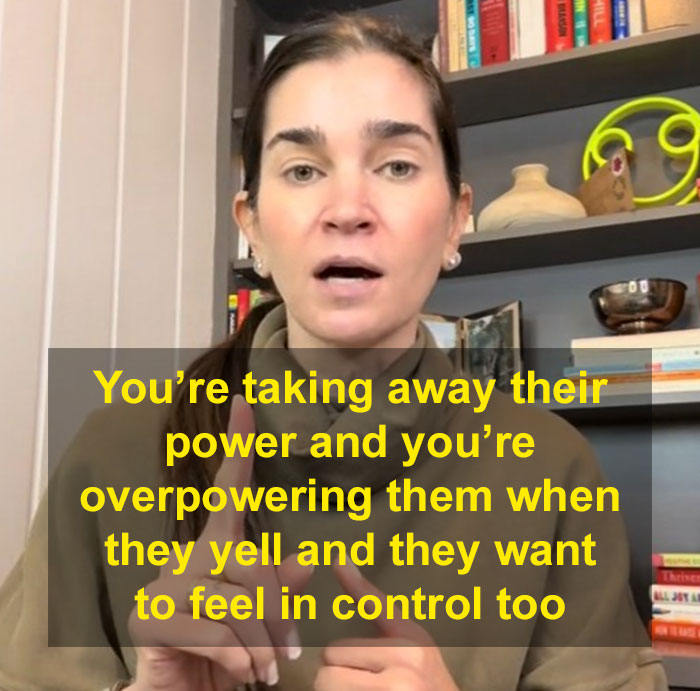
Image credits: parentingcoach
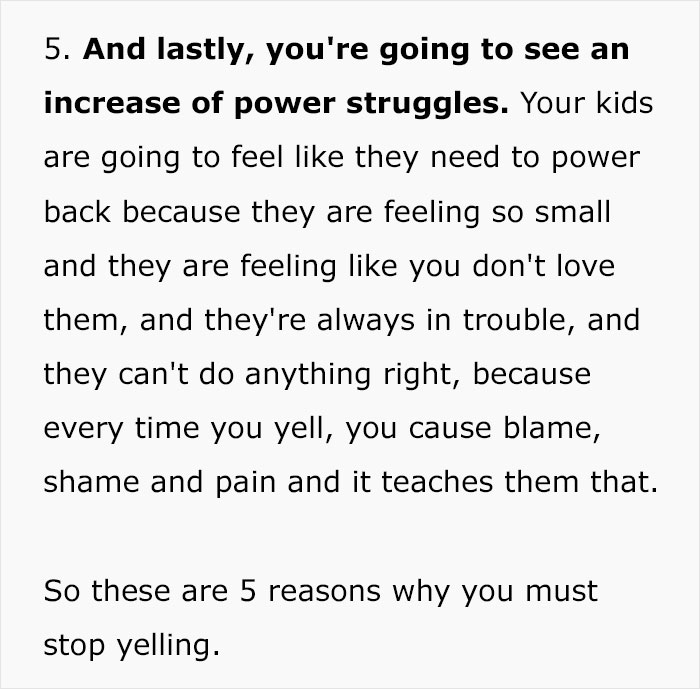
Image credits: parentingcoach
You can find the full video from the parenting coach here:
@parentingcoach 😳😳5 things that happen when you yell at your kids that teach them to listen less and act out more Trust me you NEED TO LISTEN if you yell! JOIN ME UPCOMING TRAINING ➡️ LINK ON HOMEPAGE #parenting #positivediscipline #parentingcoach #motherhood #parentingtips #momlife #parenthood #consciousparenting #parentingishard #parentingskills #positiveparenting ♬ original sound – Tia Slightham M Ed. Certified
Parents raise their voice because it’s their automatic response to getting angry
Even though parents aren’t proud of raising their voice, they do it because it’s their automatic response to getting angry, says Joseph Shrand, MD, the chief medical officer of Riverside Community Care. While it’s normal to have feelings of anger, the thing that matters is what caregivers do with it, he notes.
“We feel anger because we wish our child would stop doing something or start doing something,” Dr. Shrand further explains. For instance, parents might want their children to stop bickering or start cleaning their rooms. These behaviors that parents want to change can lead to anger outbursts.
However, such a parenting strategy is far from effective. A loud voice rarely makes the message clearer and usually has the opposite of a desirable effect. When parents raise their voices at their children, their brains feel threatened and unsafe, which prevents them from learning the lesson parents are trying to teach. That’s why it might seem that children refuse to listen when parents raise their voices.
When kids are yelled at, they can also start to feel devalued and lose their self-worth. This might further break the connection between the child and the parent, making the little one lose a sense of security and trust in their primary caregiver. All of this combined can result in increased pushback since children feel like they’re being overpowered. In addition, they might deem it appropriate to yell back at parents, as kids tend to mirror the behaviors of others.

Image credits: Getty Images / unsplash (not the actual photo)
“Peaceful and calm communication helps a child feel safe”
On the other hand, calmness is reassuring, which makes children feel loved and accepted no matter how they behave. “Peaceful and calm communication helps a child feel safe and makes them more receptive to the lesson we’re teaching,” says clinical psychologist Dr. Laura Markham.
The first step towards being more zen and handling anger is to acknowledge it. “The moment you recognize your anger, you activate your prefrontal cortex and interrupt your spiraling emotions,” says Dr. Shrand. This is important as it takes the brain from feeling to thinking.
Then, parents should try to take a time-out where they take deep breaths, say as little as possible, put their hands under running water, or count backward. After calming down, they can try to diffuse the situation without it escalating further.
This can take a lot of work, so it’s understandable if caregivers slip up and raise their voices. The most important thing is that they own up to it and apologize, showing a good example to their children. What can make this process easier is building stronger bonds and connections with kids. Doing it outside aggravating situations is a great place to begin, notes Dr. Markham.

Image credits: Getty Images / unsplash (not the actual photo)
Parents in the comments were grateful that the parenting coach brought up such a topic














The post Parenting Coach Gives 5 Reasons Why Parents Must Stop Yelling At Their Kids first appeared on Bored Panda.
from Bored Panda https://ift.tt/1EPOf7e
via IFTTT source site : boredpanda